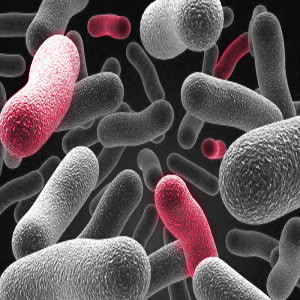Bacteria have been used for thousands of years in helping prepare fermented foods such as cheese, wine, and yogurt. What may not be well known is that researchers have discovered bacteria can also help diagnose cancer.
Researchers from MIT and UCSD have programmed probiotics, a type of beneficial bacteria found in yogurt, to become bioluminescent. Bioluminescence, the emitting of light through a chemical reaction, allows spreading cancer to be detected. Because researchers will be able to see cancer spread throughout various parts of the body, they will be able to target their treatment plan better.
Many types of cancer will quickly spread or metastasize to other organs. Earlier detection of cancer cells lowers the risk for the patient. “New data is showing that those [early-detected cancer] patients may have a higher survival rate, so there’s a particular need for detecting early metastasis in the liver,” says Sangeeta Bhatia of MIT.
Researchers have programmed a strain of E. coli, a bacteria commonly found in the digestive tract, to produce a luminescent signal. The E. coli bacteria thrives in the tumor microenvironment, where the body’s immune system defenses are lowered. Scientists took advantage of this phenomenon to use bacteria as a potential method for early cancer detection.
Image Source: Visuals Unlimited, Inc./Science Stills/ARS
So, how did the E. coli bacteria become bioluminescent? Researchers cleaved the bacteria cells to express the enzyme lacZ. The lacZ enzyme is linked to luciferin and causes the luciferin to be excreted into the urine. Because luciferin is a luminescent protein produced by fireflies, the luminescence can be easily detected by a urine test.
In a study conducted on mice with colon cancer that had spread to the liver, over 90 percent of the metastatic tumors were colonized by the probiotic bacteria. The probiotic bacteria are especially useful in targeting liver cancer because the liver is especially difficult to image with conventional techniques, such as CT scanning or magnetic resonance imaging (MRI).
This new system provides more sensitivity when detecting liver tumors. It could significantly help patients with a higher disposition for liver cancer—including those previously diagnosed with colon cancer.
Andrea Califano, a professor of biological sciences at Columbia, believes the study is “seminal and thought-provoking in terms of clearing a new path for investigating what can be done for early detection of cancer.”
Feature Image Source: Bacteria by AJC1










